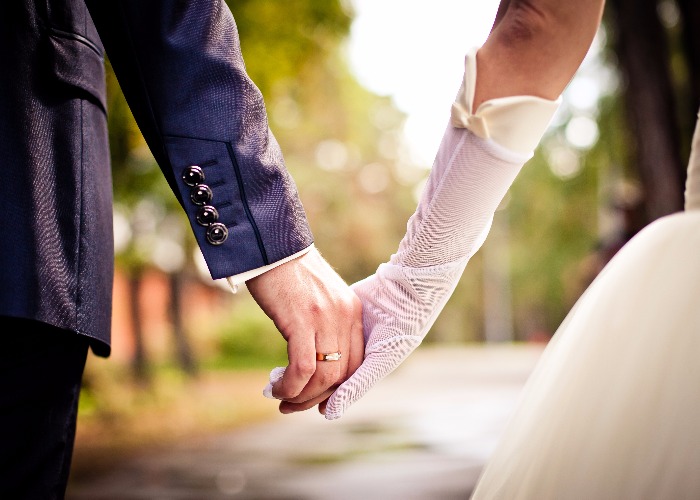The Cupid tax: new Stamp Duty stealth tax that will hit married couples

The new Stamp Duty changes are supposed to hit landlords, but married couples may also pay thousands more as a result.
Lovers planning to pop the question on Valentine’s Day are being warned that, if their partner is a home owner, it could lead to them facing a higher tax bill if they buy a property after they get married.
Couples are set to be the unintended victims of the higher Stamp Duty rates aimed at landlords and second home owners, leading to experts dubbing it the 'Cupid tax'.
Will your relationship status mean paying more tax?
How Stamp Duty is changing
From 1st April 2016, the Government will charge an extra 3% Stamp Duty on purchases of residential property if the purchaser already owns another property. The move was announced in the Autumn Statement in November.
The aim is to discourage landlords and property investors from expanding their portfolios, freeing up more homes for first-time buyers.
The change will mean some second home owners will pay five times more tax than before.
A first-time buyer buying a £200,000 home will pay Stamp Duty of £1,500. This is based on paying 0% on the first £125,000 of the property value and 2% on the portion between £125,001 and £250,000.
But from April, landlords will have to pay 3% for the first £125,000 and 5% (instead of 2%) on the amount between £125,001 and £250,00. This gives them a total bill of £7,500.
The Cupid tax
But it’s not just landlords who’ll be hit with the tax surcharge – it’s anyone buying a second home.
Married couples and those in a civil partnership will be treated as a single unit for the purposes of the new rules. That means that if one of the couple already owns a property, any property purchase by, or with, the other partner will be subject to higher rates of Stamp Duty.
The Association of Taxation Technicians (ATT) claims this discriminates against individuals in a marriage or civil partnership. It says the rules around Stamp Duty should be like Income Tax, where individuals are taxed independently.
One way around the rule is for married couples planning to buy a second property to do so before 1st April – but that doesn’t give you much time.
Unmarried, but cohabiting, couples have the option of having one property in each of their names, so they won't be hit.
Save on your mortgage with loveMONEY
Is the Cupid tax fair?
Whether you think the new rules are fair or not may well come down to your marital status.
I’m not married, and I can think of several examples where the tax system favours married couples over single people.
Since April 2015 married couples and those in civil partnerships have been allowed to transfer £1,000 of their personal tax allowance to their spouse or civil partner. The tax break applies if couples are both basic rate taxpayers with one earning less than the personal allowance. This tax break means couples who benefit will be up to £200 a year better off. For more read How to apply and boost your married couple's tax allowance.
I didn’t hear any married couples complaining about this tax anomaly when it was announced; the 'tax on being single' went mostly unnoticed.
Married couples can also re-jig the family finances to reduce the Income Tax paid on savings and investments if one spouse pays a lower rate of tax than the other. And couples benefit from Inheritance Tax rules too. Married couples and civil partners are allowed to pass their possessions and assets to each other tax-free. Singletons leaving behind an estate worth more than £325,000 will saddle beneficiaries with a 40% tax bill on anything over this.
It’s not just the tax system that penalises single people. It’s generally more expensive to live alone, while singletons are often penalised financially by insurers and holiday firms among others too.
But saying all that, married couples could be forking out thousands of pounds for the privilege of owning two homes between two people – I’m not sure that’s fair.
The tax on marriage?
The ATT is calling the Stamp Duty surcharge oddity a “tax on marriage and civil partnerships” but these are not the only people who’ll be paying more under the new regime.
Many parents now jointly buy a house with their child because it’s the only way the child can afford to get on the property ladder. But if the parents already own a home it will invoke the extra Stamp Duty charge, as the child’s home will count as a second property.
You could also be caught by the Stamp Duty surcharge if you own a home abroad and decide to buy one in the UK too. This means Brits owning a property abroad and foreigners buying in the UK could both be hit with a higher Stamp Duty bill.
Another quirk is that companies owning 15 properties of more could be exempt from the Stamp Duty hike. So large-scale property investors – typically those landlords hated by tenants the most – will escape the extra cost.
Do you think the stamp duty surcharge is fair? Let us know below.
Save on your mortgage with loveMONEY
Be better off with loveMONEY:
Comments
Be the first to comment
Do you want to comment on this article? You need to be signed in for this feature